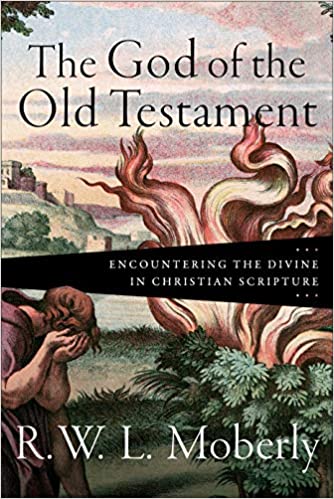Q. It’s interesting that you chose the Elisha story in 2 Kings as the jumping off point for discussing monotheism, even though the person making the monotheistic remarks is a foreigner named Naaman rather than Elisha. Any reason for not discussing this in conjunction with the Shema and its implications?
A. Well, it’s partly because I’ve already discussed the Shema in my OT Theology. But one of my reasons for choosing the story of Naaman (other than that I like it!) is that it shows a non-Israelite, a gentile, coming to faith in the LORD, the God of Israel, and that is the potential situation for most people in today’s world. What might be involved in coming to recognize that this deity is not just a god but the one true God?
Q. Chapter Six reads like a cautionary tale about what my old preacher used to call ‘rabbit’s foot religion’— a belief that God will protect us, despite our sins and moral failings, if we just say the right prayers, and name and claim that protection. The question becomes— for whom and under what circumstances is ‘God a very present help in times of trouble, a refuge….’? This chapter also raises various questions about Zion theology and the notion that God would not let the city fall, since it was his dwelling place, a theology blown out of the water by 587 B.C. As you say ‘religious complacency can lead to moral corruption’ and then all bets are off. It seems to me that Zion theology, as a way to read Ps. 46 is overrated, since Zion is not mentioned. More intriguing to me is the theme of God being opposed to weapons of war, and demanding trust in himself rather than in such weapons. This is a message we need to hear today, again and again. If God is the one who makes wars to cease to the ends of the earth, a sort of eschatological vision I assume, this raises questions about the warrior God images of God in various places in the OT, or the God who seems to order a herem. How would you read Ps. 46 in light of Joshua or Judges?
A. You ask the big questions! Specifically on the issue of God’s commanding Israel to practice herem (sometimes rendered “holy war”) on the inhabitants of Canaan, I have a detailed discussion also in my OT Theology, ch.2. I argue that there are good reasons within Deuteronomy to see the language of herem being used as a metaphor for specific actions that represent faithful allegiance to the LORD: not entering into marriages outside Israel with those who have allegiances other than to the LORD, and not giving space to the symbols and implements of other allegiances. As such the language can be seen as analogous to the strong language of Jesus about not compromising – “If your eye causes you to sin, pluck it out, if your hand causes you to sin, cut it off”. The point is to take such language seriously, not woodenly.
More generally, God’s involvement in warfare in, say, Judges, is part of a depiction of what may be necessary as part of life in this world. It may not be an ultimate good or goal, but it may be a requirement in the meantime. I think you can also make the case that Judges shows both the often futile and the corrupting nature of warfare, such that it points the reader to look elsewhere for the deeper and more lasting good.












